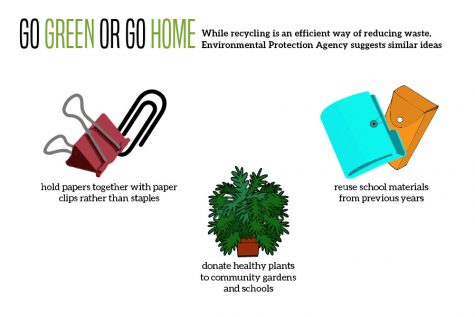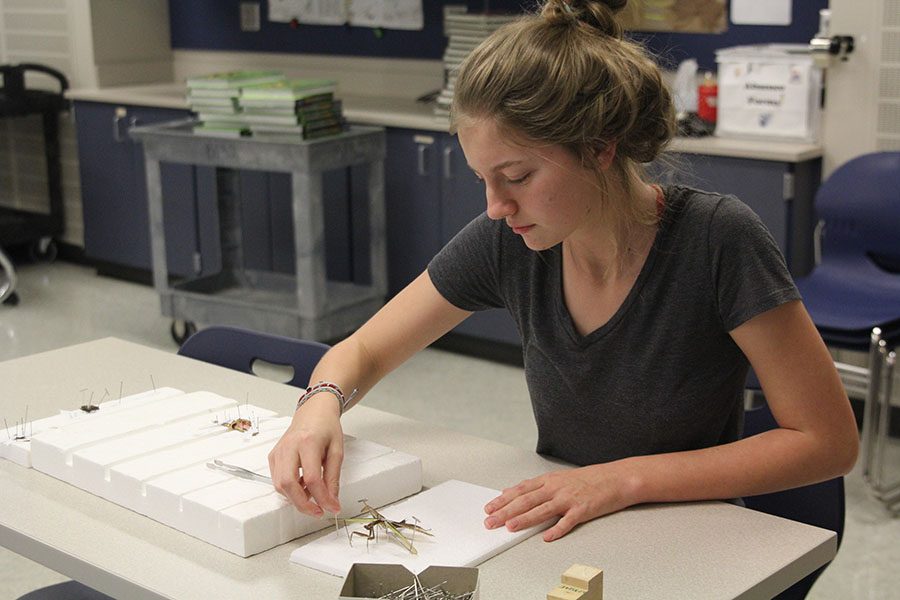As part of the Plants and the Environment class taught by science teacher Julie Roberts, sophomore Kaylee Cleaver puts pins in the styrofoam board to set the dead insect into place during seminar on Wednesday, Feb. 22.
Education provides pathway to promoting environmental change
Studying the environment provides a way to reduce waste and encourage change
March 8, 2017
Here at school, there are numerous opportunities to get involved for people who care about the environmental protection. Biology classes usually have an environmental impact unit, but for those who want to delve deeper, Environmental Science is the pathway to learn more.
Environmental Science teacher Julie Roberts teaches what kind of impact humans have on the environment.
“We cover populations and then spend the rest of the class on human impact,” Roberts said, “so for human impact, I separated it out into the atmosphere, land and water and how humans impact those different areas.”
Senior Dalton Bray said his interest in environmental issues encouraged him to explore his higher education options. After high school, Bray plans to attend Northeast Community College in Norfolk, Nebraska where he will participate in a lineman and energy program.
“I want to figure out how energy is distributed among the entire grid and find better ways to conserve energy,” Bray said.
Nearby at the University of Kansas, there are many roads to take when it comes to learning about environmental impact after high school. Dr. Terry Loecke from the Environmental Studies program described how interested students can earn a degree while benefiting the environment they live in.
“Across the university, many faculty have an interest in the environment that finds its way into their courses,” Loecke said via email. “At KU, the Environmental Studies program is an interdisciplinary program and undergraduate program where many of faculty interested in the environment are appointed or affiliated.”
The list of classes available to study just at KU includes everything from Environmental Issues in Africa to the Biology of Fungi. Research opportunities are also emphasized, many of which are  available to undergrads.
available to undergrads.
“As a faculty in the Kansas Biological Survey research unit,” Loecke said, “my colleagues and I focus on how a number of factors [such as] climate and land management within Kansas and beyond, influence water, air and soil quality, wildlife habitat and populations and ecosystem diversity and functioning.”
Not everyone, though, is going to college to major in environmental sciences. Roberts says that simply taking an interest in the subject and educating yourself is important to reducing human impact on the environment.
“I think the biggest thing for most people is understanding their impact,” Roberts said. “The first step is understanding. Once people understand how they’re impacting the planet, they’re willing to make changes.”
